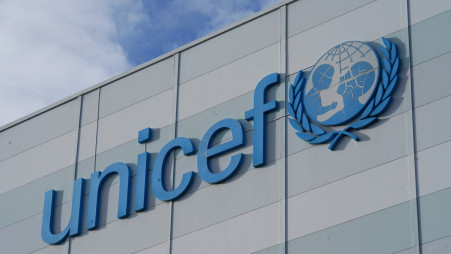UNICEF welcomes interim govt's decision to establish separate children's courts

UNICEF welcomed the Government of Bangladesh's recent decision to establish separate Children's Courts, marking a significant step toward ensuring a child-friendly justice system that upholds the rights and well-being of children.
This landmark decision reinforces Bangladesh's commitment to implementing the Children Act, 2013, aligning national legal frameworks with international standards, including the United Nations Convention on the Rights of the Child (UNCRC), reads a press release.
"In too many cases, children who desperately need to be supported by the social welfare system fall into the criminal justice system. Having child friendly systems is a step toward ensuring that rehabilitation is given every opportunity to work – putting the focus on a system that is designed to rehabilitate, not punish," said Rana Flowers, UNICEF Representative in Bangladesh.
"This initiative is a response to the brave call from young people during Summer 2024 for justice and a fairer system and will help break cycles of vulnerability and create a more just and inclusive society for young people," she added.
Flowers said UNICEF will continue to support the government to ensure that children and young people are not arbitrarily detained or separated from family, ensuring due process in a system that recognizes their age, ensures specifically trained personnel are working with them and where rehabilitation is the goal.
The establishment of Separate Children's Courts is vital for treating children in conflict with the law with dignity, UNICEF said.
These courts will offer specialized legal and social services, focusing on rehabilitation rather than punishment, and ensure proceedings in child-sensitive environment with trained judges and legal professionals.
The decision comes at a crucial time, after the civil unrest in Bangladesh in 2024, where young people demanded justice, accountability, and better opportunities.
Their advocacy highlighted the need for reforms to protect children and adolescents from violence, exploitation, and wrongful detention.
Regretfully, during that time, and according to the OHCHR report from last February, children were subjected to arbitrary arrest and often detained in police stations, at Detective Branch headquarters and in prisons, together with adults, UNICEF said.
They were also subjected to other violations there, including torture, ill-treatment and coercion to induce confessions.
The youth movement showed the strength and leadership of Bangladesh's youth, pushing for policies that recognize children's rights and potential, UNICEF said.
This reform is a direct response to their demands ensuring that justice is accessible, fair, and rehabilitative for all children, and to avoid atrocities such as those reported in the OHCHR report against children happen again, said the UN agency.
UNICEF is "committed to working with the government, judiciary, civil society, and young people" to help implement this reform.
This includes providing support in setting up courts, training justice professionals, and strengthening social service systems to protect and care for children.



 Keep updated, follow The Business Standard's Google news channel
Keep updated, follow The Business Standard's Google news channel















